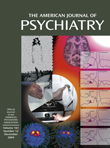To the Editor: Two recent articles on the treatment of suicidal patients—the case conference by Hendin et al. and the Introspection by R. Peter Uhlmann, M.D.
(1)—highlight the potential but neglected role of family therapy in these challenging cases. The articles are written by two psychiatrists struggling to understand disparate outcomes with their respective patients: a suicidal woman who denigrated therapy, eventually living a fulfilling life, and a physician invested in therapy who killed himself when he seemed to have much to live for. With hindsight, both psychiatrists wished they had intervened differently—Dr. Uhlmann with more individual psychotherapy and “Dr. P” with more, perhaps better, drugs. In our opinion, a key unrecognized issue is family therapy. We believe that it was their difficulty in appreciating the family system that compromised the psychiatrists’ ability to understand their own roles and the outcomes, good and bad.
Dr. Uhlmann’s contact with his patient’s family was both formal and informal in a community where he was the sole psychiatrist. His patient kept appointments but demeaned the process. Her attendance, however, signaled her need and, ultimately, her ability to make good use of the relationship. His dedication to a relationship that left him perplexed set a good example, as did his meaningful connection with her family. We believe his chronically suicidal patient included him as a central figure in her life, probably as a replacement for her father who had killed himself; she held onto this absent father in a melancholic identification with her psychiatrist. As with many chronically suicidal patients, she would not give up her potential fatal choice, which she kept as part of her attachment to her father. By bringing Dr. Uhlmann into her family, she attained a healthier family constellation while treating him as she would her closest relatives. A positive outcome with seriously disturbed patients, in which the therapist is a somewhat distant but real and reliable “relative” is not unusual and quite understandable to the family-oriented therapist. Bolstered by such an understanding, Dr. Uhlmann might have tolerated his patient’s negativism and suicidality with less pessimism and puzzlement.
In the physician suicide case, excessive deference to a medical colleague certainly contributed to the regrettable outcome. But we can be more specific. Dr. A’s depression was reactive to his wife’s infidelity. Two years of treatment with medication and ECT did little, and 2 years of treatment began with another psychiatrist, Dr. P, who reluctantly agreed to the patient’s request that the wife attend all sessions. Marital issues, however, were hardly addressed, as Ms. A was allowed to simply observe. This resulted in a therapy that was neither individual nor marital. We can speculate that Dr. A wanted to punish his wife by “dragging” her to therapy, and perhaps she did penance in participating. But we don’t even know if the affair ended and whether anger, remorse, justification, a contributory marital history, and ultimate reconciliation were addressed. Evidently not. This is analogous to treating a patient exposed to toxins without ruling specific agents in or out.
It is not a simple matter to decide how much to explore when an affair comes to light. The details sought by an offended spouse and offered by a guilty one may not prove therapeutic. The psychiatrist working on the case must exercise damage control while exploring marital issues and finding ways to help the spouses rebuild their relationship or exit constructively. If Dr. P felt unprepared to perform marital therapy himself, he could have negotiated with Dr. A, who seemed devoted to him, to involve a consultant family therapist with Dr. P in attendance.
Training in family therapy is still the exception rather than the rule in psychiatry residency programs. Such training may seem to impose on already overscheduled programs, but developing specific skills to work with families makes clinical work more interesting and rewarding. Most residents and medical students like this training, which is experiential and includes “live” supervision. Family-inclusive psychiatry adds to the attractiveness of our specialty in an era when technological approaches threaten to overwhelm its humanistic side. We should not leave this area to our colleagues in nonmedical disciplines, but a recent APA document suggested that by default, as it devoted almost three pages to somatic therapies, half a page to psychotherapies, and no specific mention to family therapy
(2). By learning to “think family”—always viewing the patient in that context—we are more likely to provide the best psychiatric treatment.

